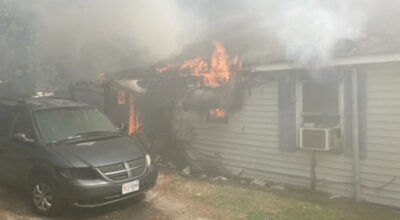Norovirus arrives for Christmas
Published 10:26 pm Thursday, December 12, 2013
A Chesapeake-based Virginia Department of Health epidemiologist says anecdotal evidence suggests the norovirus seasonal stomach bug has hit the area already.
“I have had anecdotal cases — it appears we have had some cases in Chesapeake,” Lisa Engle said. “It would be surprising if it wasn’t in Suffolk (also).”
The department says its data indicates norovirus is arriving in the state in time for the holidays.
It says it analyzes disease dynamics via data collected from emergency departments and urgent care centers.
“By tracking current disease surveillance data and applying that to established historical data trends, our experts are able to define baselines and thresholds for disease activity and make evidence-based predictions of when certain seasonal illnesses, like norovirus, will increase,” State Health Commissioner Cynthia C. Romero said in a news release Thursday.
“Based on current data analysis, we expect to see an increase in norovirus illness and outbreaks in Virginia over the next few weeks.”
Last season saw 184 norovirus outbreaks in Virginia, the department says.
The illness can have a big impact on day care centers, prisons and jails, schools, nursing homes and other such facilities, which the department says it works closely with to minimize.
The highly contagious gastrointestinal virus causes vomiting, diarrhea and abdominal cramping. Engle said it hangs around throughout the year, however it spreads to more people during winter.
“It’s just like the flu, it’s a virus that changes every year,” Engle said. “A lot of the time, more than one strain will be circulating.”
She stressed the importance of washing hands, which she said was the single most effective way of combating spread of the bug.
And while the holidays mean families coming together, Engle says that’s not such a good idea if norovirus is present — especially where children and the elderly are concerned.
“Families really like to visit nursing homes and assisted-living facilities,” she said. “They will bring the kids in to see grandma for the holidays.”
But if grandma or the grandson/daughter is sick, Engle added this should be avoided.
The department also recommends disinfecting contaminated surfaces with bleach-based household cleaners, washing soiled clothing and linens with hot water detergent, and not preparing food for others if sick.
Norovirus normally does not require hospital care, the department says. It advises keeping up fluids to avoid dehydration, especially in children and the elderly, and seeking medical care if severe dehydration sets in.






